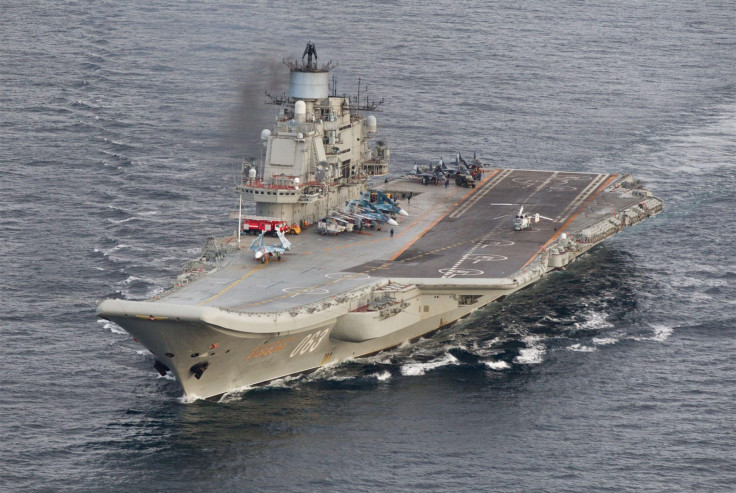Russia readies itself for 'huge offensive' on Aleppo to save Assad say intelligence reports
The Times says Moscow wants to exploit the political hiatus of the US election cycle.

Russia will undertake a full-scale military attack on the city of Aleppo as Vladimir Putin seeks to exploit a political lull in Washington just before the US election to try to score victory for his ally Bashar al Assad, it has been reported.
An intelligence assessment has shown that Moscow's sole aircraft carrier will enhance Russian military firepower over the Syrian city to back Assad's regime.
"We think that the Russians are on the brink of a major military assault on Aleppo. There could be significant humanitarian consequences," a Western intelligence source told The Times, which said it saw the intelligence report.
There are said to be 275,000 men, women and children who are still living in the rebel enclave in Aleppo.
The Admiral Kuznetsov is expected to arrive off the Syrian coast between Wednesday (2 November) and Friday (4 November) accompanied by seven escort ships, including a missile-firing battle cruiser and two destroyers.
The Russian war fleet was refused by Spain to refuel on its way to Syria following concerns by the military alliance.
Three Russian attack submarines are also thought to be heading towards the area, armed with cruise missiles.
Nato secretary-general Jens Stoltenberg warned the Syria-bound fleet could be used to target civilians in Aleppo, which was dismissed by senior Russian Foreign Ministry official, Andrei Kelin.
"The concerns are not based on anything as our planes have not come near Aleppo for nine days," he told the RIA news agency.

"Our battle group is in the Mediterranean. Our ships have always had a presence there. Why make some spurious suggestions and then make some political recommendations based on them? It is of course absurd."
But Michael Clarke, former director-general of the Royal United Services Institute, told the paper: "We are going to beat ourselves up about this for years to come, just as we did about the Rwanda genocide and Srebrenica."
"Aleppo is like a slow-motion train crash. You can see what is going to happen next and sure enough it does," he said.
© Copyright IBTimes 2025. All rights reserved.






















